

HEALTH
Don Champions Specialized Stroke and Trauma Hospitals: Discover Why This Could Change Lives!
Published
2 months agoon
By
OBS
Dennis Naku
A Professor of Radiology, in the Faculty of Clinical Sciences, College of Medicine. University of Port Harcourt, Rivers State, Prof. Chinwe Onwuchekwa, has called for the establishment of stroke and trauma centres in all states of Nigeria, as well as budget inclusion to subsidise cost of treatment for underprivileged sufferers.
She said such centres should be manned by well-trained staff to manage the patients suffering from the ailments.
Prof. Onwuchekwa, who is the head of the department of radiology and the first female radiology professor in Rivers, stated this during an interview with South-South OBS shortly after delivering the 201st inaugural lecture of the University of Port Harcourt titled ‘Unravelling the Mystery of Grey Shadows, Pains of the Head and Low Back’ at the institution in Port Harcourt.
She stated, “Government should set up stroke and trauma centres in every state of the nation, where the staff are highly trained, specifically to manage stroke and trauma patients.
“Funds to support the needs of the centres should be included in both the state and the national budget in order to subsidise the cost of treatment for those who may not afford the fees for their care in these centres. Patients managed in these specialised centres do well to recover faster with good outcomes.”
The 201 inaugural lecturer also said social and physical rehabilitation is very important for people who have survived stroke, head injury, cancer surgery and treatment.
“Rehabilitation Centre should be sited in a strategic area in every state where it can easily be accessed by members of the public. These centres should be funded by either state or federal government to make the cost affordable for the public.”
She said most cases of head injuries are caused by road crashes due to the deplorable state of roads in the country, saying there are no good roads and drivers are not well trained, while many people drive without licenses.
“Like me, I have not gotten my renewal of my license, which I paid for since, “ she said.
She added, “Good road network and adequate evaluation of drivers and vehicles by the relevant government authorities. The roads should be maintained regularly, with traffic warning signs at strategic points.”
Prof. Onwuchekwa emphasised the need for proper training and testing before driver’s license is issued, adding, “Vehicles used for commercial transportation should be properly evaluated before registration for us. These will reduce the rate of road traffic accidents and head injuries.’’
Onwuchekwa, who is the first female professor of radiology at UNIPORT, explained that lecturers look forward to delivering inaugural lectures after appointment as a professor because it affords one the opportunity to let the world know that one is now a professor and what one did to attain that academic height.
“So, this inaugural lecture what I did was because my area in Radiology is Neuroradiology. So I decided to talk about some of the research I did in Neuroradiology and Radiology in small parts.
Explaining the title of her lecture, she said, “Grey shadows. For instance in the past when we do black and white pictures what you see is the black area, white area.
“But when you look at the images you don’t see just black and white, there are some other colours in between the black and white. That is what gives the grey appearance. So the images from the Radiological machines come out as black and white images with different shades of grey depending on what is there.
“So it’s that grey shadow produced by the tissues. It could be cancer tissue, it could be normal tissue, it could be air. So with that shadow, we are able to say this is what is there,” she explained.
“Our work is to diagnose the lesions in those images and then advise the clinicians, who are the doctors managing the patient, because we don’t manage, to tell them, This is what your patient has; this is what you’re supposed to do, and they follow our advice because if they don’t follow our advice and anything goes wrong, it is already written because our report is usually written and you cannot change it.”
“So it is something that if you don’t follow and you go wrong and your patient dies, you’re in trouble because the Radiologist’s report is there to expose you,” she stated.
Shedding light on the title of the lecture, Prof. Onwuchekwa said, “Most of the diseases of the Central Nervous System are seen in the head and part of it at the lower back because of the nerves that leave the spinal cord to supply the body.
“So in this head so many things can happen as I mentioned. I talked about stroke, talked about headache, it’s in the head. I talked about cancers of the head and neck region, it’s on the back and trauma, head injuries. People die when they have head trauma.”
The don continued, “When stroke occurs, there is a mental and physical disability. It is like a heavy load on the head of both the patient and the relatives. It is a thing of the head awaiting cross-section imaging to unravel the mystery of the grey shadows.”
Most people, she said, “When they have trauma in other parts of the body they survive; but once it’s the head there is a problem. The person may become unconscious, the person may die; the person may become maimed for life, you know.
“The person may have some neurological deficits, and they can’t carry themselves because it’s the head and spinal cord that control the body. If anything happens to them, then there must be problems with other parts of the body.”
Earlier in his remarks, the Vice Chancellor of the University of Port Harcourt, Prof. Georgewill Owunari, commended the lecturer for displaying deep insight in her field of study and for what he described as her “brilliant, critical, and deeply humane lecture.”
He stated, “I salute the scholarship, the dedication, and the clarity of purpose that Professor Regina Chinwe Onwuchekwa has displayed before us today.
“This lecture has done more than just present radiological facts. It has confronted us with the truth that behind every grey shadow on the screen is a life, a hope, a struggle, and also a silent cry for healing.”
The VC further said Prof. Onwuchekwa has demonstrated that radiology is not simply a technical discipline but the height of modern medicine.
“To our policy makers who are here, who have heard her speak, may I emphasise that investing in radiology is investing in life itself. For every stroke detected early, for every cancer unmasked in time, for every mother’s pain explained by imaging, add years to life and life to years.”
All rights reserved. This material, and other digital content on this website, may not be reproduced, published, broadcast, rewritten, or redistributed in whole or in part without prior express written permission from OBS.

You may like
-
Unbelievable Surge: NGX Market Value Skyrockets to N93.8tn! Discover What’s Driving This Uptrend!
-
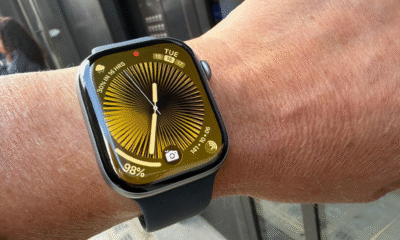

Discover How the New Apple Watch Measures Your Heart Rate with Amazing Accuracy!
-


AI Apps Hit 1 Billion Users: ChatGPT Surpasses X! Discover the Trend!
-


Are You at Risk for Prostate Cancer? Discover Why Some Men Could Miss Important Screenings!
-


England Star Hails Incredible Performances After World Cup Qualification – Discover the Secrets Behind Their Success!
-


Discover Why Breakfast Is Truly the Most Important Meal You Can Have!
HEALTH
Can’t Tell If It’s Covid or the Flu? Here Are the Key Symptoms You Must Recognize as Cases Surge!
Published
2 weeks agoon
October 16, 2025By
OBS
Health officials are warning of a seasonal surge in flu and Covid-19, with cases already starting to rise as autumn arrives.
But because the two viruses share many symptoms, it’s difficult to tell them apart.
When a sniffle seems to progress further than “just a cold”, it’s hard to know what it might be – but there are differences in how the viruses appear and the risks they pose.
Do I have Covid?
Covid-19 continues to cause serious illness, particularly among vulnerable groups. The virus is constantly evolving, with new variants spreading easily through coughs, sneezes or even conversation.
Vaccination campaigns each autumn continue to try to prevent hospitalisations and deaths.
The list of symptoms has shifted since 2020. Many people now experience cold-like symptoms, such as a runny nose, sore throat or blocked sinuses. But others still report fever or chills, a persistent cough, fatigue, headaches, shortness of breath, or a loss of taste and smell. Nausea and diarrhoea can also occur.
Doctors say a hoarse throat has become one of the hallmark features of the latest variants.
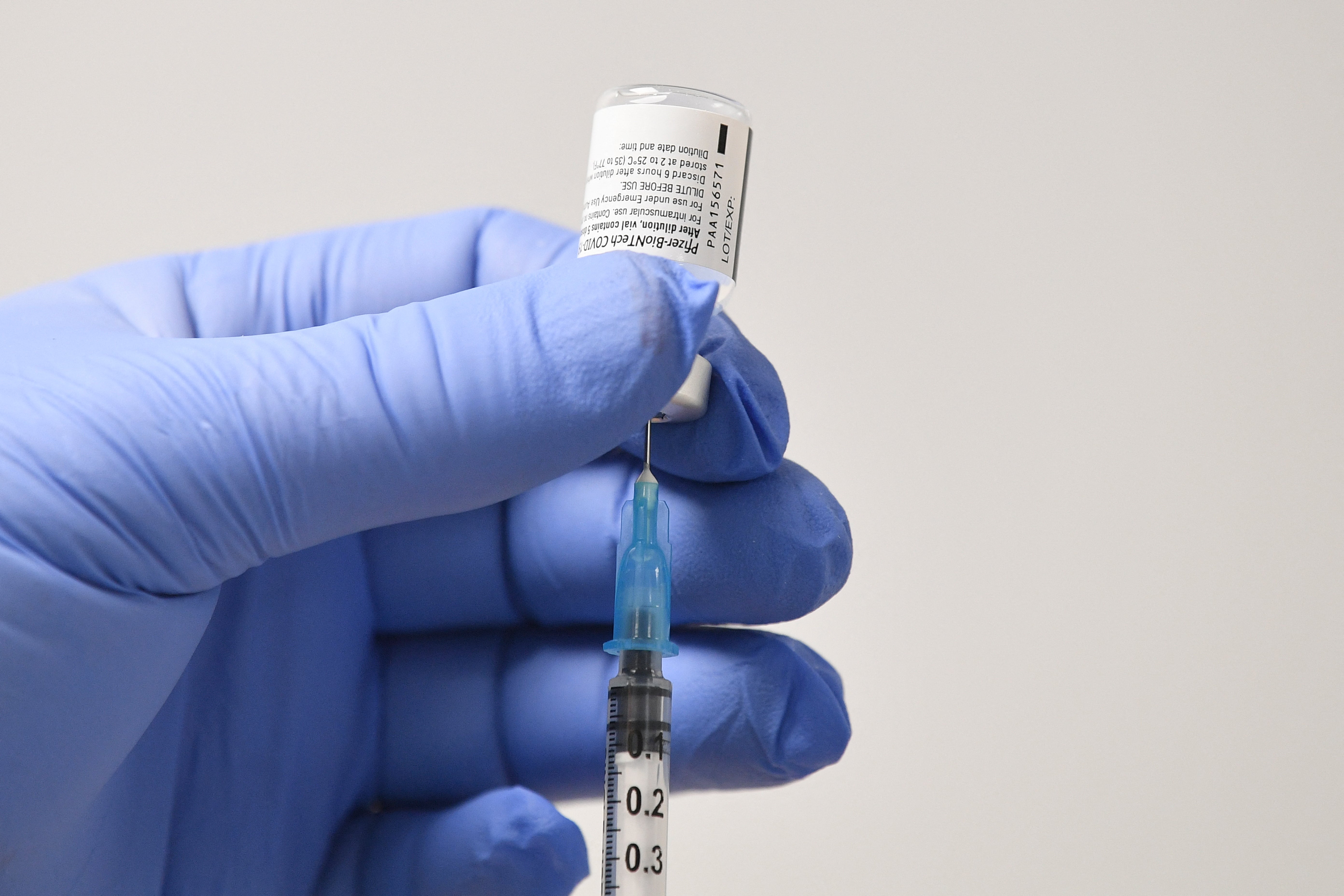
The latest strain, called Stratus, has two variants, XFG and XFG.3. Another recent strain, NB.1.8.1 nicknamed Nimbus, is also prevalent.
“Stratus is linked to hoarseness and fatigue, whereas Nimbus is associated with a ‘razor-blade’ sore throat and digestive symptoms like nausea and bloating,” explains Dr Bruno Silvester Lopes, lecturer in microbiology at Teesside University. “Both are highly transmissible but not more severe than previous variants.”
Despite accounting for a large proportion of new cases, experts are not concerned about the spread, noting it is normal for viruses to mutate and change.
Those aged 65 and over, care home residents, and people with underlying health problems are all entitled to the Covid-19 booster.
Do I have the flu?
Flu is a respiratory infection that strikes hardest in winter and can be far more debilitating than the common cold. While colds typically bring a runny nose, sneezing, watery eyes and mild throat irritation, flu tends to arrive suddenly with fever, aches and exhaustion.
Last winter alone, the flu sent more than 8,000 people to hospital. Over the past two years, at least 18,000 deaths in the UK have been linked to the virus. Children, older adults, people with long-term health problems and those with weakened immune systems face the highest risks.
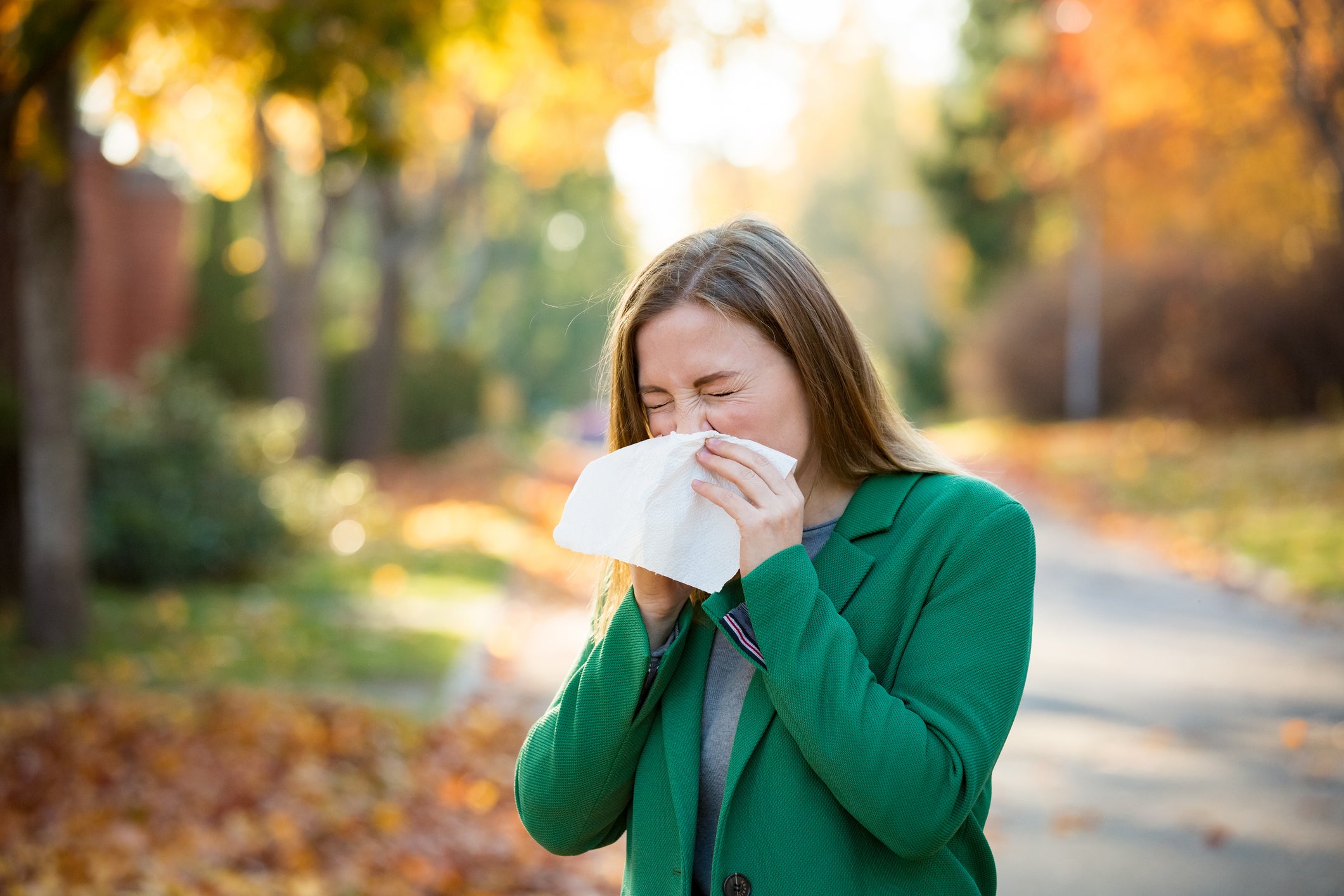
Vaccination remains the strongest defence. Research shows that last year’s jab prevented thousands of severe cases, cutting hospital admissions by almost a third among over-65s and by more than half among children aged two to 17.
This autumn, the flu vaccine is being offered free to those over 75, pregnant women, children aged 2 and 3 through their GP, and schoolchildren from reception to year 11 via nasal spray. Adults under 65 with certain health conditions are also eligible.
How to tell difference between Covid and a cold
Colds and Covid can be tricky to distinguish as many of their symptoms overlap.
“Both can give you a sore throat, runny or stuffy nose, sneezing, and coughing,” says Dr Chun Tang, a GP at Pall Mall Medical. “However, Covid can also cause fever, fatigue, muscle aches, and that telltale loss of taste or smell – although that’s less common with newer variants.
“Covid is also more likely to make you feel wiped out, like you’ve been hit by a truck, whereas a cold tends to stay in your head and chest.”
“Both spread mainly through droplets when someone coughs, sneezes, or even talks near you,” says Tang. “Covid, however, can also spread more easily through the air in tiny particles that linger, especially in crowded or poorly ventilated spaces.
“So, while a cold might need a bit of close contact to catch, Covid can sometimes sneak across the room if you’re unlucky.”
Are cases climbing now?
According to the UK Health Security Agency, levels of flu and Covid-19 are already on the rise running into winter, joining other seasonal bugs such as RSV and norovirus.
UKHSA reported an increase in the number of reported Covid diagnoses in its 9 October report, with the most prevalent strain noted as Stratus XFG. Flu activity was also increasing among young adults with a surge in emergency department attendances for flu-like illnesses.
Experts say the risk is highest during the colder months when viruses spread more easily indoors.
Officials are urging everyone eligible to take up their vaccines to reduce the strain on hospitals and protect the most vulnerable. Both flu and Covid-19 can be serious, but prevention and early awareness remain the best tools against them.
HEALTH
Shocking Recall: Grocery Store Taco Kits Contain Hot Chocolate Packets!
Published
2 weeks agoon
October 16, 2025By
OBS
The Giant Company is recalling its Giant and Martin’s-branded hard taco dinner kits after hot chocolate sachets were discovered inside the packages.
The mix-up, announced October 10, could pose a risk to consumers with milk allergies.
The recall affects the 9.4-ounce Giant/Martin’s Hard Taco Dinner Kit (UPC 068826757516) all lot and codes, with a best-by date of March 13, 2026.
Consumers with a milk allergy should not eat the kits. Anyone who purchased the affected product can return it to a nearby store with a receipt to receive a refund.
Milk allergy is a common food allergy in children, caused by cow’s milk or milk from other mammals, according to Mayo Clinic.
.jpg)
Reactions can occur soon after consumption and range from mild symptoms like hives, vomiting, and digestive issues to severe, life-threatening anaphylaxis.
The main treatment is avoiding milk and milk products. Most children outgrow the allergy, while others may need to avoid milk long-term.
Meanwhile, Sno Pac Foods, a Minnesota-based company, has issued a nationwide recall of its frozen spinach products due to potential contamination with Listeria monocytogenes, a bacterium that can cause serious infections.
The recall affects two products: Del Mar 35-pound Bulk Organic Frozen Spinach and Sno Pac 10-ounce Organic Frozen Cut Spinach. These products were distributed across various retail stores in the U.S. The recall was prompted after a bulk case of spinach from a supplier tested positive for the bacterium.
This same lot was used to repack the Sno Pac Organic Frozen Cut Spinach into 10-ounce bags. As a precaution, Sno Pac Foods has suspended production of these products while investigating the source of the contamination.
No illnesses have been reported in connection with the recalled products. However, Listeria monocytogenes poses a significant health risk, particularly to young children, the elderly, pregnant women, and individuals with weakened immune systems.
In healthy individuals, infection may cause short-term symptoms such as high fever, severe headache, stiffness, nausea, abdominal pain, and diarrhea. Pregnant women are especially vulnerable, as infection can lead to miscarriage or stillbirth.
HEALTH
Could Trump’s Meds Be Slowing Him Down? Expert Warns They Might Not Be Helping!
Published
2 weeks agoon
October 16, 2025By
OBS
An adviser to Health Secretary Robert F. Kennedy Jr. warned Wednesday that President Donald Trump may appear to be “slowing down” because of the medication he takes, as questions continue over the president’s mental and physical health.
In a speech to the European Parliament, Dr. Aseem Malhotra, a British cardiologist who advised the lobby group Make America Healthy Again, said that Trump, 79, may be suffering from fatigue due to his use of cholesterol medications, or statins, and aspirin.
“President Trump is taking statins; he’s on two cholesterol drugs… This man does not have any cardiovascular disease,” Malhotra said during a launch event for a new European health activism organization, Make Europe Healthy Again (MEHA).
“If you’re over 75 and have no cardiovascular disease, the benefit of statin is – are you ready? One in 446. You have to give the statin to 446 people to prevent one cardiovascular event,” he said. “In other words, no significant benefit.”
Malhotra, a vaccine skeptic whose anti-COVID shot and anti-statin views have been rebuked as misinformation by medical experts, has been a close ally to Kennedy.
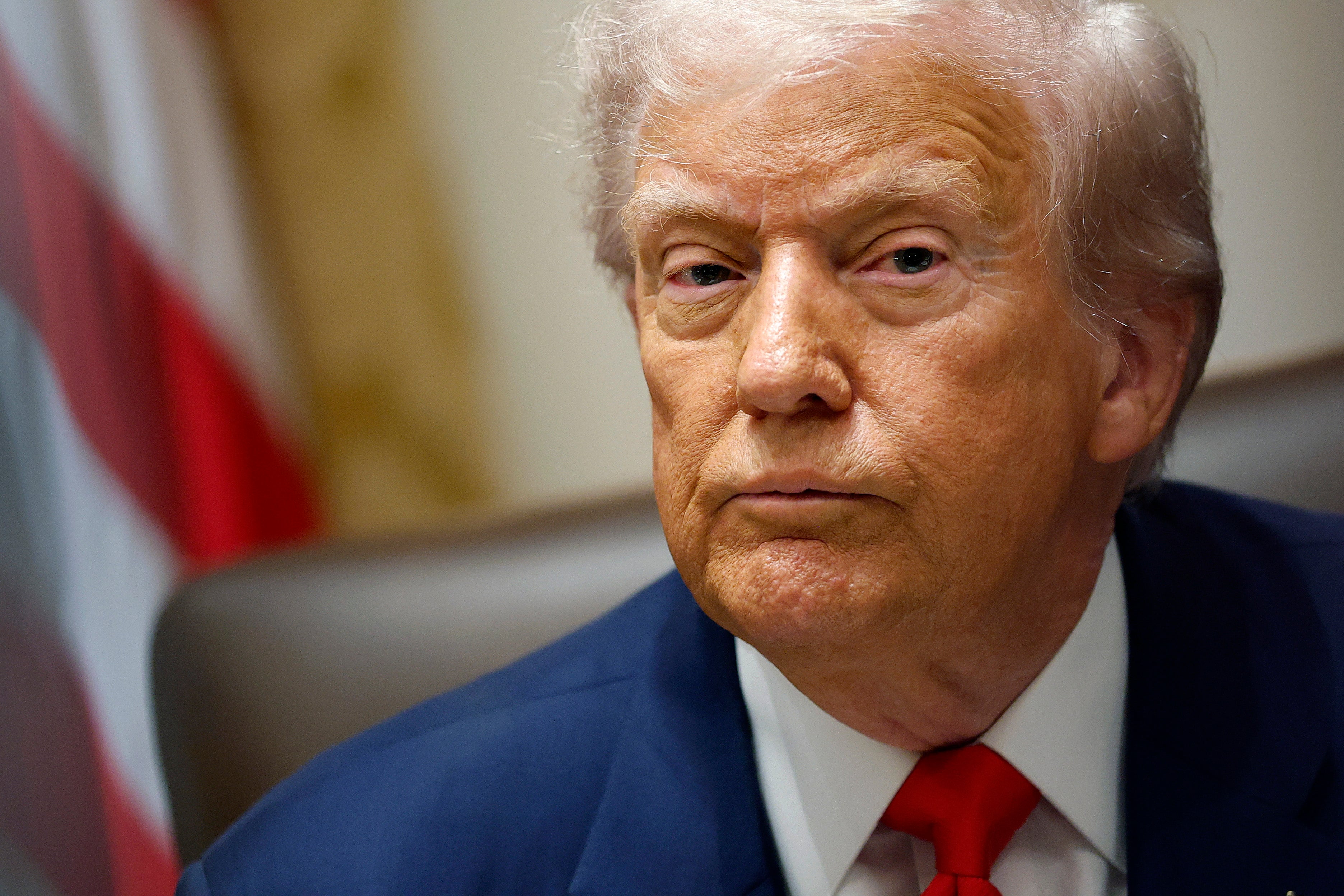
His comments come amid claims that the president may be showing signs of “cognitive decline,” due to mixing up names and other gaffes. Despite the speculation, the White House said last week that Trump was in “excellent overall health” following a “routine check-up” at Walter Reed Medical Center.
In addition to concerns about his mental acuity, Trump’s physical health has also come under question. The president has often been photographed with bruising on his right hand, raising concerns that he is suffering from some illness. The White House insists that this is a result of him shaking hands with a large number of people and his use of aspirin, which he takes as a cardiovascular protection.
White House officials revealed earlier this year that he had been diagnosed with chronic venous insufficiency, a non-life-threatening condition caused by the veins struggling to return blood to the heart. The condition is common for people over the age of 70.
During his remarks, Malhotra noted that cholesterol medication often comes with side effects, saying: “The most common ones are fatigue, muscle pain. It can cause brain fog.”
He added: “Now, I know that President Trump is a remarkable man for his age, but there have been reports – probably exaggerated by some sort of devious press for sure. But I know people who are close to him… and of course he is doing a tremendous job and maybe only sleeping four hours a night, and that may be part of it too, but it could also be that he’s slowing down a little bit because of his statins,” he continued.
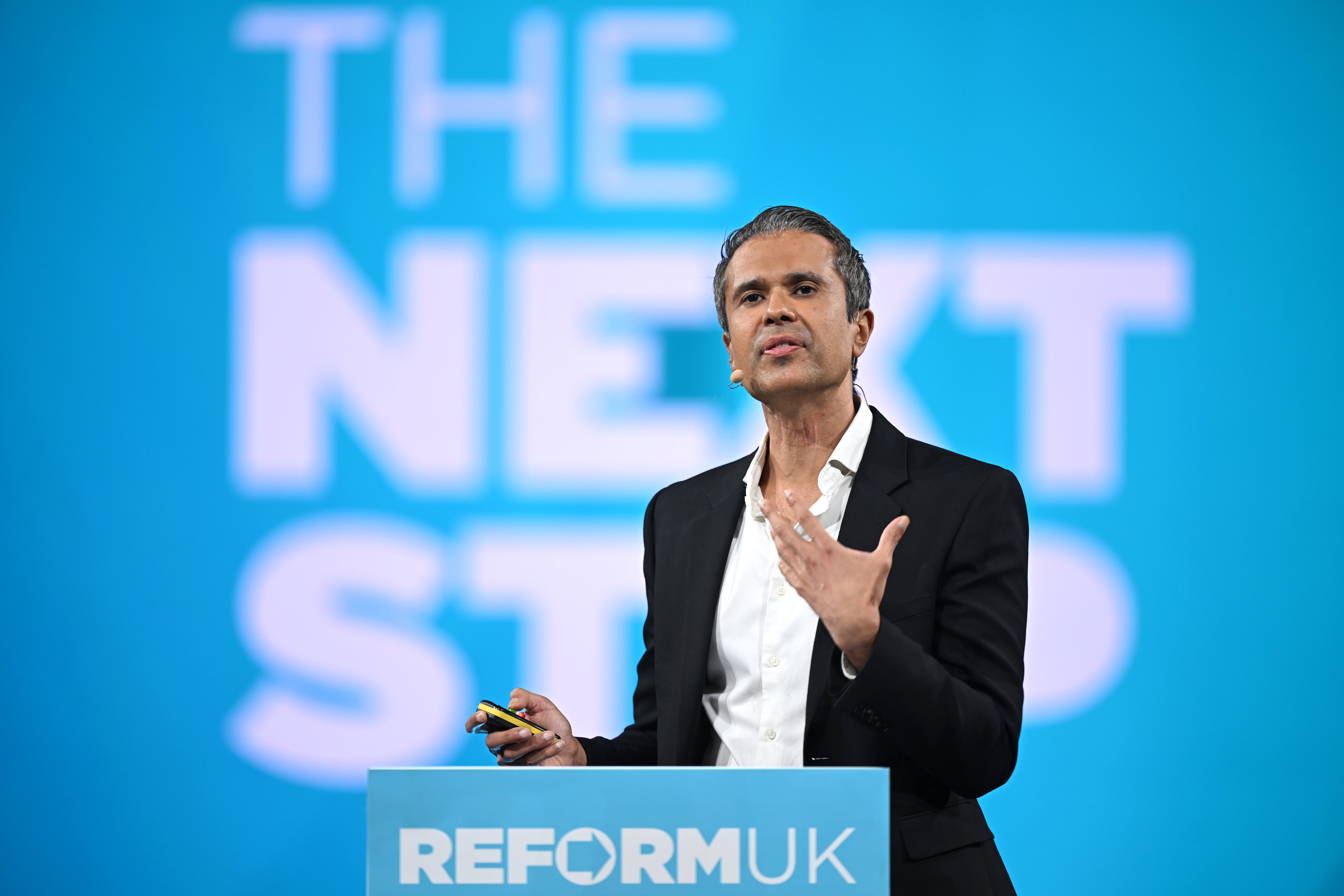
Malhotra then suggested that Trump go “off his statins, off his aspirin” and would be “feeling great” within a matter of weeks.
He was apparently so concerned about Trump taking the medications that he has reached out to several people close to the president to try and warn him against it, The Daily Beast reported Tuesday ahead of Malhotra’s public remarks.
In a statement to The Independent, the White House said: “President Trump is a champion-level golfer with the mental acuity and energy levels that most young people could not fathom having.”
“So-called medical ‘experts’, especially foreign ones with no relevance or involvement with the Administration, should stop beclowning themselves and marring their credibility by pitching their idiotic hot takes with Fake News outlets that have nothing better to cover,” White House spokesman Kush Desai said.

Along with Trump’s most recent gleaming health report, White House officials noted the president received a flu shot and an updated COVID-19 booster, which Malhotra called unnecessary.
“I think President Trump, I think he genuinely took the [COVID-19] booster, I don’t think that this is a front. I think he believes in what’s happening. He himself is also a victim of medical misinformation,” Malhotra said.
However, recent research shows that COVID shots protect against serious illness and death, especially for people over the age of 65. Researchers from the VA St. Louis Healthcare System looked at data from nearly 300,000 veterans and found that last season’s Covid vaccine reduced the risk of emergency room visits by 29 percent, hospitalizations by 39 percent and deaths by 64 percent for all ages, NBC News reports.
Combining all three outcomes, the shots’ overall effectiveness was 28 percent, making it similar to the flu shot, which ranges from 30 to 60 percent protective against severe illness or death.
An April health report also noted that Trump, who was the oldest person to ever take office in January at 78, was in “excellent” health.
The report also noted that Trump had high cholesterol that was being treated with the statin rosuvastatin and ezetimibe, a medication used to absorb cholesterol. He was also taking a low-dose aspirin as part of the treatment, his doctors said at the time.
While there is no evidence that statins alone cause dementia, the FDA added a safety warning to the medications in 2012 to warn of “notable, but ill-defined memory loss or impairment that was reversible upon discontinuation of statin therapy.”
Last month, Malhotra made headlines after suggesting – without evidence – that King Charles III may have gotten cancer because of the COVID-19 vaccine.
Categories
Top Tags
Related posts





















